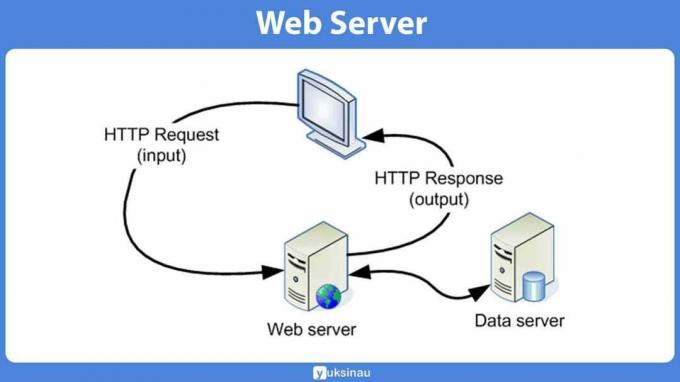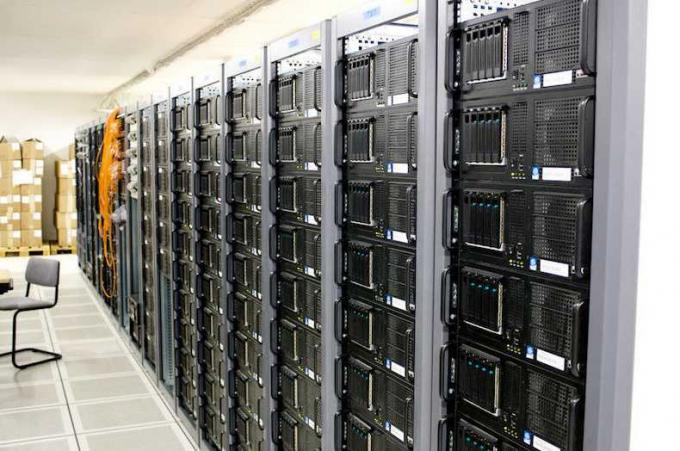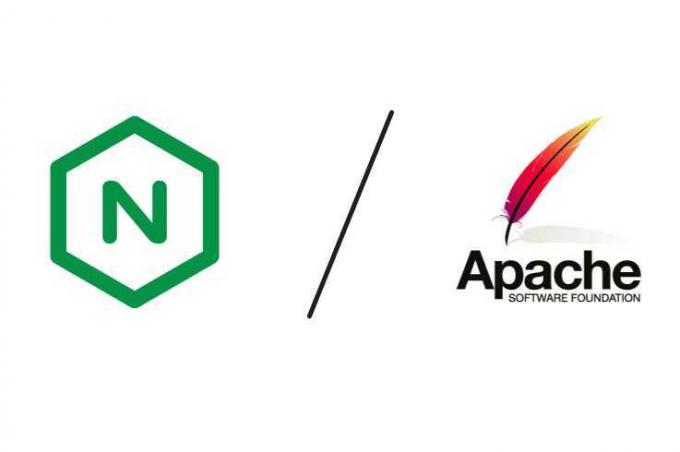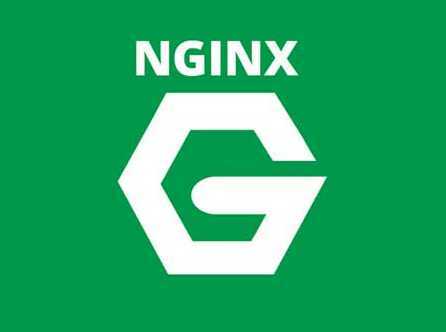Web Server: Definition, Functions, Types, How it Works
The more advanced the world of technology, especially in the field of the internet, makes some people begin to realize that studying technological advances is very important.
The use of the internet in this era has even become a daily routine. When searching on the internet a user will act as a client which will then be processed by the web server.
Web server itself is a necessity for a client or user in visiting a website.
Table of contents
Understanding Web Servers in General
A server or web server is a software that will provide data-based services and function as a recipient of requests sent by a user through a browser.
The request is then displayed to the user according to the request sent to the server. It can be said that the web server is a control center that has the function to process requests received from a browser.
Understanding Web Servers According to Experts

Several experts have also expressed the notion of a web server, experts who have expressed their opinions include:
1. Solichin
In the website programming course that has ever existed, he once stated that what is meant by a web server is a software that is installed on a server computer.
The software functions to receive requests from users in the form of HTTP or HTTPS and then send them back in the form of HTML document web pages.
2. Kurniawan
According to Kurniawan, a web server is a software that serves to accept HTTP or HTTPS requests from browser users.
Then it will be sent back to the user in the form of a web page in the form of an HTML document.
The web server in question is a simulation of a physical web server. Web servers are usually also called HTTP servers because they use the HTTP protocol as a base server.
3. Khairil
The opinion that has been expressed by Khairil is that a web server is a software that becomes the backbone for a world wide web or WWW.
Furthermore, he said the web server will wait for requests from users who use browsers and then process the requests.
After the request is received the web server will work by displaying it again in a browser as a result of the process of requesting data submitted by the user.
4. Nugroho
According to this expert, a web server is a form of server that is specifically used to store a website page or homepage.
A computer can be said to be a web server if it has a server program called a Personal Web Server (PWS).
This Personal Web Server is used so that web pages on a server computer can be accessed by the user's computer.
Web Server Functions

The main function of the web server itself is as a tool that will transfer request data from the user through a predetermined communication protocol.
The web page requested by the user consists of text files, videos or images and more. In addition to these main functions, the web server also has other functions such as:
- Ensure that all modules requested by the user are available and ready to be used.
- Clean cache storage and modules that are no longer used.
- Check security on every request sent by the user.
Web Server Type

There are several types of web servers that are widely used as a control center for website services. Some types of web servers that are often used as a control center for a website include:
1. Apache
Apache is one of the most frequently used web servers as the control center of a website.
Even Apache is the most popular and most used web server based on the W3Tech Top Ranks Web Server survey in January 2020.
Of all existing web servers, Apache web server usage reaches more than 41.5%. This happens because Apache is very flexible when used for various operating systems.
Apart from being flexible, Apache setup and configuration is very easy and simple. This certainly makes many users choose Apache as their web server.
2. NginX
NginX itself is the second most widely used web server today, this one web server is also known as engine X.
NginX is in great demand because the server service is quite stable and resource efficient. This is certainly the reason that makes NginX the 2nd popular web server after Apache.
In addition to the above advantages, the features provided by NginX such as services in handling high-traffic websites are an added value for this web server.
3. Litespeed
Litespeed is also one of the web servers that is the control center of the website with the best performance. This is proven by the number of web hosting companies that use Litespeed as their web server.
In fact, a research has revealed that Litespeed has advantages which include 50% faster processing speed in PHP and 6x faster than Apache.
How Web Servers Work
The workings of the web server itself is as discussed above. Web server is software that will provide services to users in the form of web pages according to user requests.
More fully, if an internet visitor searches using a browser, then the request from the search will enter the web server.
After the request enters the server, then the request will be processed by TCP (Transmission Control Protocol) as the transport protocol.
When the data has been found, then the server will send it back to the web server via HTTP or HTTPS in the form of a web page display.
However, if the server is unable to find the data according to the request, a 404 error page notification or page not found will appear.
This complex process can in fact take place very quickly when we access it.
Strengths and weaknesses
As for the advantages and disadvantages of some web servers are as follows:
Apache web server

Advantages :
- Open Source.
- Easy Installation Process.
- Easy to customize or change.
- Peripherals in the web server.
- Can be used on various platforms from mainframes to embedded systems.
- A large community that makes it easier to find solutions to any problems that arise.
- Easy to find on the internet.
- Servers can automatically connect with clients to get web views.
- Good security and because it uses SSL
Deficiency :
- Can't control load like IIS so it has a bit of a limit to what the OS allows.
- Easily attacked by DoS
- Doesn't execute string referrer puppeteer quotes characters
- Changing the format
NginX Web Server

Advantages :
- open source.
- High performance, quite stable and has many features in it.
- Configuration is easy and uses very few resources.
- More powerful for multiple hosting.
Deficiency :
- Quite a long time to update compared to other web servers.
- Fast CGI has not worked perfectly.
- Sometimes having problems with .htaccess if the webmaster configuration doesn't match.
Litespeed Web Server

Advantages :
- Has up to 50% faster performance in managing php.
- Server performance is 6x faster than apache server.
- Has an anti-DDoS system.
- HTTP request valid delimiter.
- Recover failures in an automatic way.
- Prevent system overload.
- Compatible with direct admin, cpanel, and pls.
- Also compatible with Apache.htaccess
- Has compatibility support using modsecurity
Deficiency :
- Give a pretty high price.
- Some mods and apps can't all be transitioned
Web Server Example
- Apache Tomcat
- Microsoft windows server 2003 Internet Information Services (IIS)
- lighttpd
- Sun Java System Web Server
- Xitami Web Server
- Zeus Web Server
Conclusion
- Web server is a software that will provide data-based services and serves as a recipient of requests sent by users via a web browser.
- The web server has the main function as a tool that will transfer request data from the user through a predetermined communication protocol.
- There are many types of web servers that can be used for websites.
- Has a very fast way of working even though it goes through a very complicated process.
- Each web server has its own advantages and disadvantages.
The web server in addition to having the main function as a means of transferring user request data on a website also has other functions such as checking web security and clearing cache that is deprecated used
There are many types of web servers, 3 of which are Apache, NginX & Litespeed
Yes, here are some examples of Apache Tomcat:
1. Microsoft windows server 2003 Internet Information Services (IIS)
2. lighttpd
3. Sun Java System Web Server
4. Xitami Web Server
5. Zeus Web Server
